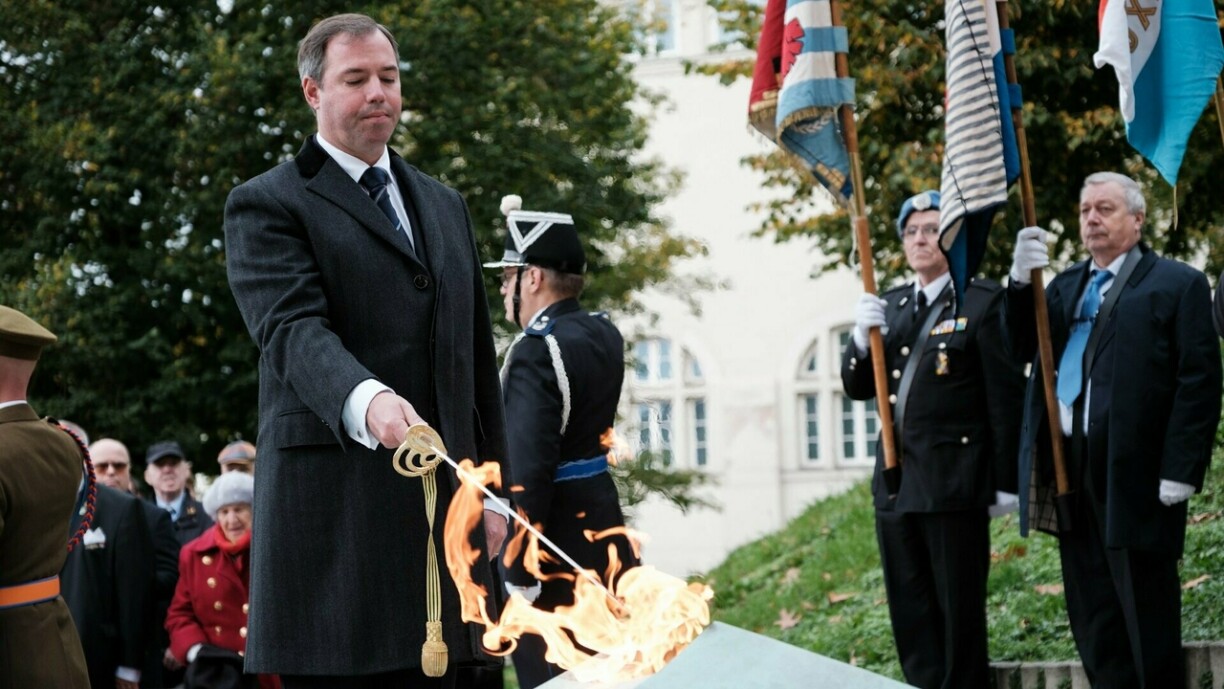
This weekend, Luxembourg commemorates the “Personenstandsaufnahme” – the population census conducted by the German occupying forces on 10 October 1941.
At the time, the Nazis sought to identify Jewish residents and forced everyone to declare their mother tongue, nationality, and “race”, effectively pressuring the population to identify as “German.”
In response, the Luxembourg Resistance urged citizens to answer “three times Luxembourgish”, and the vast majority did – a quiet yet powerful act of defiance that became a lasting symbol of national unity and resistance against Nazi rule.
While the official day of commemoration falls on Sunday, remembrance ceremonies have already taken place across many communes on Saturday. This year’s events carry special significance, as 2025 marks the 80th anniversary of the end of the Second World War.
The National Day of Remembrance traces its origins to the “Personenstandsaufnahme” of 10 October 1941. At that time, the Nazi occupiers sought to identify Jewish members of the Luxembourgish population and to pressure residents into declaring themselves “German” based on their mother tongue and so-called “race.”
The Luxembourg Resistance quickly recognised the danger and called on the population to answer all questions with a single word: “Luxembourgish.” The vast majority followed this appeal – an act of remarkable unity and defiance that ultimately led to the annulment of the census.
Eighty years ago, the end of the Second World War marked the liberation of Luxembourg and Europe from Nazi tyranny.
The courage of the Luxembourgish Resistance – born of a steadfast refusal to betray one’s identity and values – remains a powerful example to this day. Women and men, often very young and from all walks of life, consciously chose to fight for freedom. Through acts that were sometimes discreet but always deeply courageous, they resisted the occupation. Many were arrested, tortured, deported, or executed. Their commitment kept alive the hope of an independent future, even in the darkest of times.
National Socialist totalitarianism tolerated no diversity. Whether of identity, political conviction, or personal choice – all forms of plurality were seen as threats, persecuted, and often punished by death. This repressive ideology destroyed countless lives – a reality our society must continue to remember.
The war also struck thousands of young Luxembourgers who were forcibly conscripted into the Wehrmacht, torn from their homeland and compelled to fight for a regime that was not theirs. Many never returned. Countless young women were also forced into the Reichsarbeitsdienst or Kriegshilfsdienst. Their suffering, too, is part of our collective memory.
The tragic fate of Luxembourg’s Jewish community must never be forgotten. From the first days of the occupation, they were the targets of discrimination, exclusion, and terror. Their rights were stripped away, their property confiscated, their dignity denied. Many were forced to flee; others were arrested and deported to concentration and extermination camps. Only a few ever came back. The names engraved on the Mur des Noms bear witness to lives that were destroyed.
The end of the war did not immediately bring an end to suffering. The liberation of the camps revealed the full extent of Nazi barbarity and marked a moral turning point in human history. Even after peace returned, countless families waited in vain for news of their missing loved ones. Those who did return bore lasting physical and psychological scars.
Yet from the ruins of war, Luxembourg – together with its European neighbors – chose the path of reconciliation, reconstruction, and peace.
Today, as new conflicts emerge – even on our continent – it is our shared responsibility to keep remembrance alive. Current events remind us how vital it remains to defend human rights, protect democracy, and confront all forms of hatred and intolerance.
Through our daily commitment, we honor the memory of those who suffered, those who resisted, those who never lost hope – and those who, far too often, gave their lives for freedom.
Luc FRIEDEN, Xavier BETTEL, Martine HANSEN, Claude MEISCH, Lex DELLES,
Yuriko BACKES, Max HAHN, Gilles ROTH, Martine DEPREZ, Léon GLODEN,
Stéphanie OBERTIN, Georges MISCHO, Serge WILMES, Elisabeth MARGUE, Eric THILL